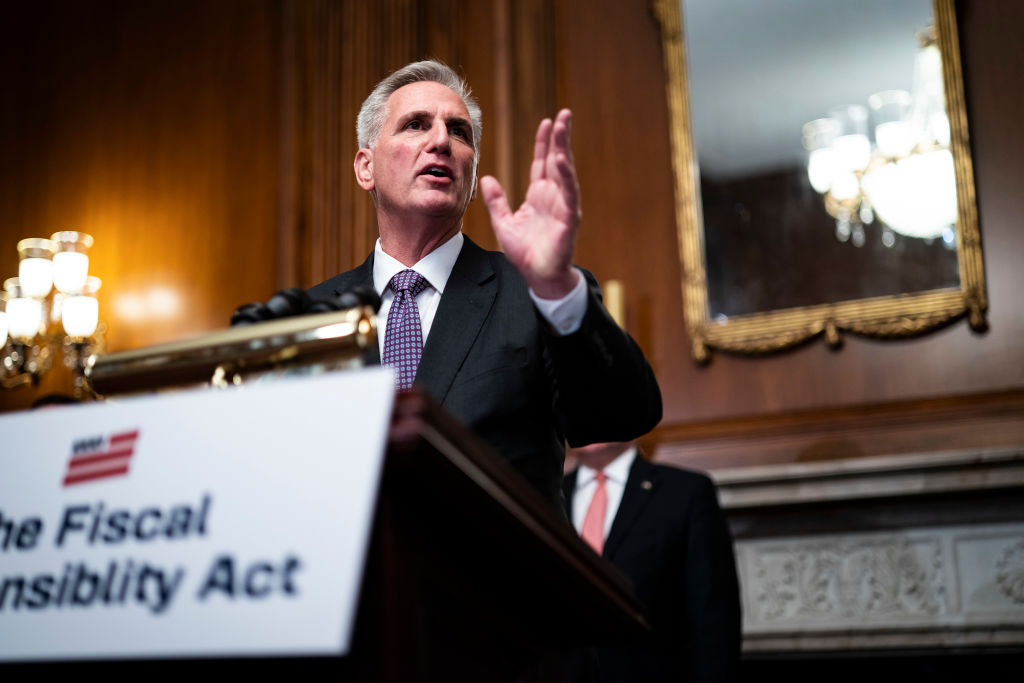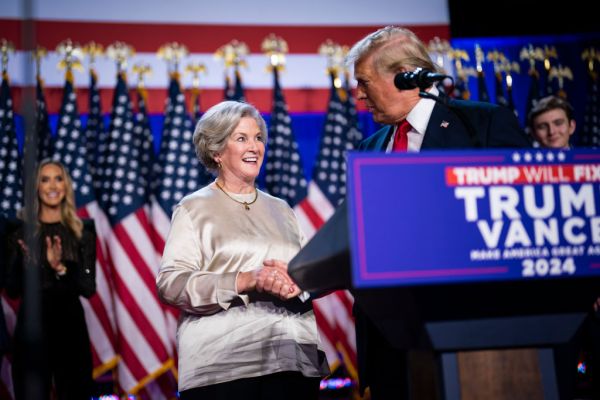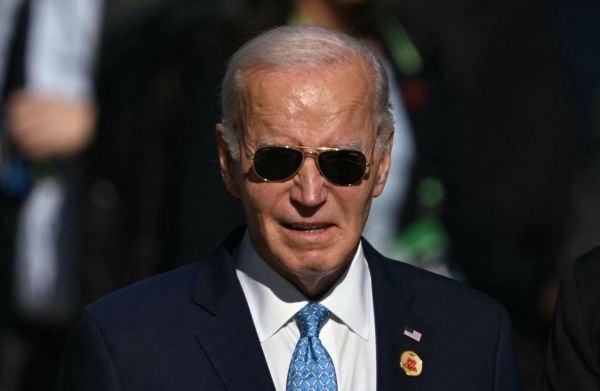Hello and happy weekend. I’m going to keep this intro short, for a couple reasons. For starters, I’m finishing this up from our son’s baseball game, and it’s 90 degrees with no shade. I’m a little worried my laptop will spontaneously combust if I’m not careful. But also, I’d rather you spent your time reading Kevin’s dispatch from Ukraine (summarized below), which we published on Monday. It’s long but well worth your time.
The biggest news this week, of course, is that Congress somehow managed to stave off default and potential economic calamity by passing a deal to suspend the debt ceiling until 2025—meaning we won’t have to endure another similar fight in the middle of an already heated election season. (I think we can all agree that the 2024 election will feature more drama than any of us would prefer.)
What’s most surprising is how anti-climactic it ended up being. The Fiscal Responsibility Act of 2023 (continuing Congress’ long tradition of naming bills in Orwellian fashion) passed both chambers with wide bipartisan support: 314-117 in the House and 63-36 in the Senate. In an earlier Boiling Frogs (🔒), Nick had predicted Speaker Kevin McCarthy’s attempt to pass a deal would look something like Chesley Sullenberger’s heroic landing of an Airbus A320 in the Hudson River in 2009. But on Thursday, he admitted it was a little smoother: “Sullenberger was still forced to crash-land on the water, after all, surviving by the skin of his teeth. McCarthy ended up gliding in for an uneventful landing at the local airport, grinning and thumbs-upping the whole way. And he did it despite never having flown a plane before.”
When I was a younger, brasher conservative, I joked frequently that the less Congress did, the better: “What’s not to love about gridlock? It keeps them from spending even more of our money!” But governance is actual, serious business. Brian Riedl of the Manhattan Institute went through the various measures in the bill and found a lot for conservatives to dislike but argued it was still vital that it be passed and signed into law. “Congress simply cannot risk the economic calamity that could result from Washington defaulting on substantial federal obligations and possibly even its own debt.”
If there is a silver lining to the deal, which is yet another temporary solution and demonstrates further that neither party is interested in addressing the real cause of our staggering debt (entitlement spending), it’s in who is most upset about it. This Politico piece from Friday details how centrist Sens. Kyrsten Sinema and Joe Manchin maneuvered quietly behind the scenes to help facilitate the deal, with Sinema relying on her experience working with House Republicans and Joe Manchin working with centrist House Democrats. All of which left far-left progressives and far-right conservatives unhappy. Manchin’s reaction? “It’s a wonderful deal when you have the extremes back in the minority,” Manchin said in Politico.
We’ve detailed extensively in these pages how primaries have weakened the parties and how campaign finance reform caused a shift toward candidates seeking small-dollar donors, and how all of that has favored more extreme candidates. It’s pretty obvious that’s not worked out too well, unless you’re a fan of lawmakers prioritizing Instagram stories, Twitter threads, and cable news hits over legislating. So while I’m not too excited over anything in the debt-ceiling deal, I’m happy with who’s unhappy.
Thanks for reading, and have a good weekend. One note of business: If you don’t get a newsletter next weekend, it’s because we’re putting the travel into travel ball, heading to Indiana for a baseball tournament and spending some time with family. But I’ll try!
The miracle of Irpin. The mass grave in Bucha. Air raid sirens in Kyiv. Ramshackle offices where spy gear is packed into “barely secure closets.” Banksy murals. Kevin went to Ukraine toward the end of May and came back with a remarkable account of what he saw. It’s impossible to do it justice here, but he paints a picture of a beleaguered nation dealing with a terrible and unjust invasion with courage and incredible will. He also addresses corruption in Ukraine—and how the government is doing its best, while fighting a war, to deal with it. “There are people who broadly share our values and who want to live in the kind of world we want to live in, however imperfect their government and however urgently in need of reform their institutions may be,” he writes. “And then there are the people who fire rockets into maternity hospitals, who train sniper fire on those attempting simply to bury the dead. There are imperfect liberal-democratic regimes and regimes whose interest is conquest and terror and subjugation—and whose appetite for these things is without a known or demonstrable limit.” It’s not hard to tell which side we should be on.
Need a little break from politics? You’ll appreciate Jonah’s G-File (🔒) from Wednesday, where he shares his key to a happy life: portfolio management. But he’s not talking about finances. He’s talking about the people in your life. We all have different groups of friends who relate to different aspects of our lives, and that’s a good thing, Jonah argues. “The great value of having different sets of friends is that you get to be different versions of yourself and there’s great joy and life satisfaction in that,” he writes. “And part of that satisfaction stems from getting better insight into your whole self.” He then takes that advice and applies to our wider culture, to make the point that “monoculture” is bad and is dragging culture war issues into areas of our lives it does not belong: “If you can pull out your intellectual lens far enough, you can see that monoculturalism is historically the ambition of authoritarians and totalitarians of every stripe. It reduces everyone’s role to a singular priority or set of priorities. It plugs up the little burrows and drains the ponds of the civilizational ecosystem that provide harbors of meaning, satisfaction, and happiness.”
We promise our readers lots of reporting and … are we delivering. The Friday edition of Dispatch Politics features reporting from David Drucker in Iowa and Michael Warren in Connecticut. Drucker has an item about Ron DeSantis’ close relationship with Iowa Gov. Kim Reynolds. Given Iowa’s important role in the presidential primary process, and with candidates traipsing through her state on the regular, Reynolds is committed to remaining neutral. But Drucker notes that the two share an obvious mutual admiration. He writes: “In five events over 24 hours across Iowa this week, DeSantis wrapped himself in Reynolds’ popularity—generating hearty applause everytime. It seemed just as much political strategy as professional courtesy.” Meanwhile, Warren followed Nikki Haley in Connecticut, where squeezed in a state party dinner and some fundraisers in between trips to New Hampshire earlier this week and Iowa this weekend. “The busy schedule reflects the dual tasks Haley faces as she seeks to remain a contender for the GOP nomination: retail politicking in the early primary states and raising enough money to stay in the race,” he writes.
And here’s the best of the rest:
- The debt-ceiling crisis has been averted, but Kevin McCarthy’s work is hardly done. As Haley reports in Uphill (🔒), the House speaker has to go about repairing his relationships with Republicans who helped make him speaker but were opposed to McCarthy’s deal with Biden.
- Progressives and the media like to complain about “greedflation”—the notion that corporate greed has caused inflation. In Capitolism (🔒), Scott Lincicome explains why they’re wrong, and what’s really caused inflation. (Three guesses and the first two don’t count)
- Can former pharma executive Vivek Ramaswamy gain any traction in the 2024 GOP primary? Andrew traveled to Iowa to see how his campaign is going.
- Harvest continues her excellent work on the immigration beat, this week looking into the increased numbers of Chinese migrants making a dangerous trek through Latin America seeking asylum.
- Supporters of former Pakistani Prime Minister Imran Khan have been causing unrest, clashing with police and attacking public buildings. What’s going on? Charlotte has the details.
- On the pods: The gang parses the debt-ceiling deal and also checks in on the 2024 GOP primary on The Dispatch Podcast. On Advisory Opinions, David and Sarah discuss a Supreme Court decision that was good news for property owners, bad news for the EPA, and get this: It was unanimous. Worried that he’s been offering up too much punditry, Jonah turns to AEI’s Hal Brands for a wonky deep dive into foreign policy on The Remnant.









Please note that we at The Dispatch hold ourselves, our work, and our commenters to a higher standard than other places on the internet. We welcome comments that foster genuine debate or discussion—including comments critical of us or our work—but responses that include ad hominem attacks on fellow Dispatch members or are intended to stoke fear and anger may be moderated.
You are currently using a limited time guest pass and do not have access to commenting. Consider subscribing to join the conversation.
With your membership, you only have the ability to comment on The Morning Dispatch articles. Consider upgrading to join the conversation everywhere.